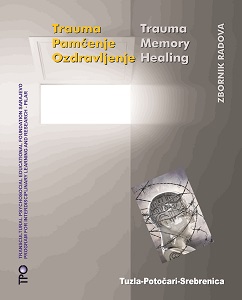Bosanski identitet: hrvatska trauma
Bosnian identity: Croatian trauma
Author(s): Dubravko Lovrenović
Subject(s): Political history, Social history, Recent History (1900 till today), Nationalism Studies, Politics and Identity, Identity of Collectives
Published by: Transkulturna Psihosocijalna Obrazovna Fondacija (TPO Foundation)
Keywords: The Bosnian Croats; Croatian and Bosnian national identity; culture Thanatos; Europeanization; nominations and re‐nominations;
Summary/Abstract: The extension of Croat national identity to a particular Balkan ethnic and confessional group, namely the Catholics of Bosnia and Herzegovina, caused a dichotomy between their cultural and political identities, which has followed this integral element in Bosnian and Herzegovinian history since the end of the 19th century. Accomplished in a symbiosis of the Romantic ideology of the Croatian Party of (Historic State's) Right and political Catholicism, the Croat absorption of Bosnia and Herzegovina’s Catholics was imagined as being in the service of a future Croatian state. Construed thus, they remained until the international recognition of Croatia and of Bosnia and Herzegovina in 1991 and 1992, with the exception of the period of the Quisling Independent State of Croatia (1941‐1945), a nation without state. With the disintegration of Yugoslavia and the birth of the new states, Bosnia and Herzegovina’s Croats found themselves in a new historical situations, between two possibillities: the mythic, thousand‐year dream of Croatia as the "mother‐land" and Bosnia and Herzegovina as an (un)wanted geopolitical reality. Consequently, this new political context of the state required a new national "text," which is to say a harmonisation of cultural and political (state) identity. Experience both during and since the war (from 1991 to 2014) has shown that attempting to resolve the so‐called "Croat Question" by promoting an exclusive relationship between ethnic labels and territory (ethno‐territorialisation) has not succeeded in removing the existing dichotomy and has, indeed, served only to deepen it, while also alienating the Croats of Bosnia and Herzegovina from their primary living.
Book: Trauma, pamćenje, ozdravljenje
- Page Range: 15-36
- Page Count: 17
- Publication Year: 2014
- Language: Bosnian
- Content File-PDF

